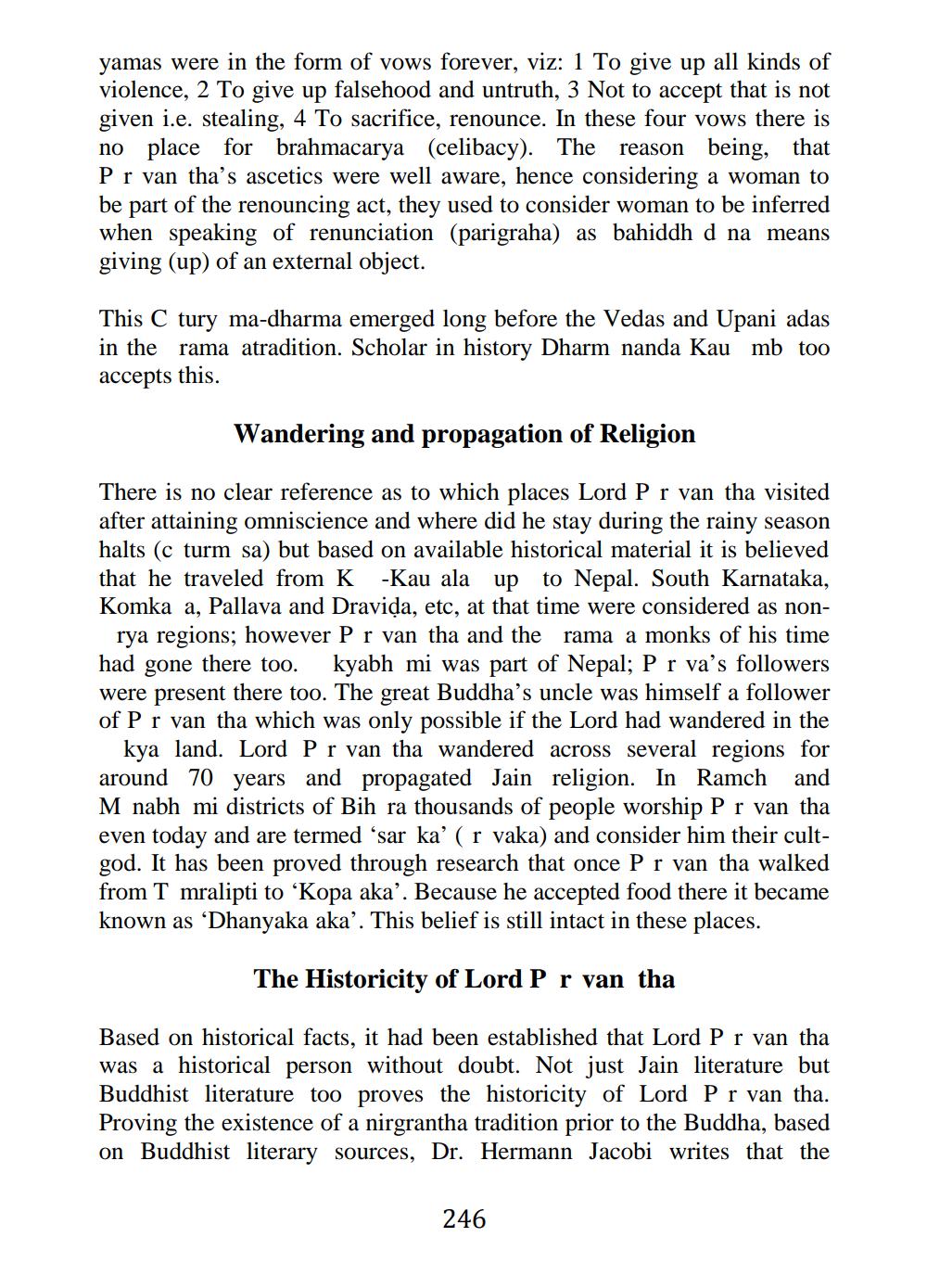________________
yamas were in the form of vows forever, viz: 1 To give up all kinds of violence, 2 To give up falsehood and untruth, 3 Not to accept that is not given i.e. stealing, 4 To sacrifice, renounce. In these four vows there is no place for brahmacarya (celibacy). The reason being, that Pr van tha's ascetics were well aware, hence considering a woman to be part of the renouncing act, they used to consider woman to be inferred when speaking of renunciation (parigraha) as bahiddh d na means giving (up) of an external object.
This C tury ma-dharma emerged long before the Vedas and Upani adas in the rama atradition. Scholar in history Dharm nanda Kau mb too accepts this.
Wandering and propagation of Religion
There is no clear reference as to which places Lord P r van tha visited after attaining omniscience and where did he stay during the rainy season halts (c turm sa) but based on available historical material it is believed that he traveled from K -Kau ala up to Nepal. South Karnataka, Komka a, Pallava and Dravida, etc, at that time were considered as non
rya regions; however P r van tha and the rama a monks of his time had gone there too. kyabh mi was part of Nepal; P r va's followers were present there too. The great Buddha's uncle was himself a follower of P r van tha which was only possible if the Lord had wandered in the
kya land. Lord Pr van tha wandered across several regions for around 70 years and propagated Jain religion. In Ramch and M nabh mi districts of Bih ra thousands of people worship P r van even today and are termed ‘sar ka' (r vaka) and consider him their cultgod. It has been proved through research that once P r van tha walked from T mralipti to 'Kopa aka'. Because he accepted food there it became known as 'Dhanyaka aka’. This belief is still intact in these places.
The Historicity of Lord P r van tha
Based on historical facts, it had been established that Lord P r van tha was a historical person without doubt. Not just Jain literature but Buddhist literature too proves the historicity of Lord P r van tha. Proving the existence of a nirgrantha tradition prior to the Buddha, based on Buddhist literary sources, Dr. Hermann Jacobi writes that the
246




